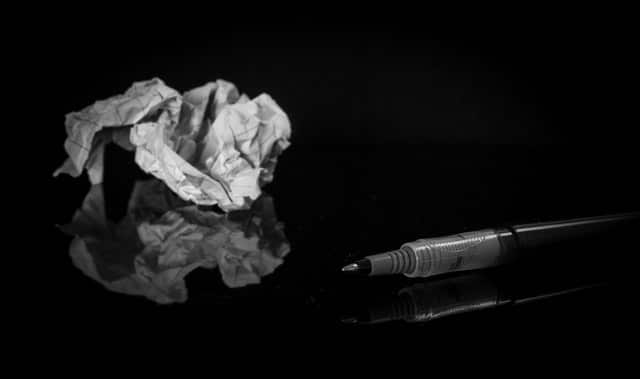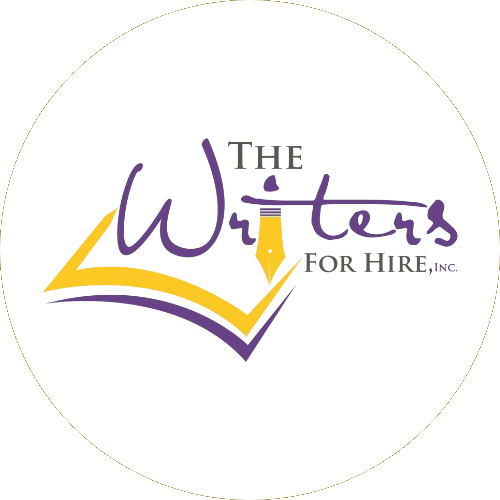Outlining a Nonfiction Book: A Writer’s Tips and Strategies for Drafting an Effective Outline
June 15, 2021
Writing a book is an exciting journey. And, as with any journey, it contains both ups and downs. However, experienced writers simplify their journey by having an accurate roadmap.
When writing nonfiction content, outlining becomes the roadmap that leads a writer from point A to point B as efficiently as possible.
Often, inexperienced writers go about their projects without a clear idea of what they intend to communicate. As a result, they struggle to finish their endeavors. However, a solid outline can provide writers with the clear path they need to produce high-quality works without wasting precious time and effort.
In this article, we will explore the importance of writing an outline for nonfiction books and will discuss the tips and strategies that successful writers use to produce effective outlines.
Why Writing Outlines are a Must
Writing a book is meant to be a finite activity. It has a beginning and an end.
This assumption is true so long as the writer completes their task. However, most aspiring authors find themselves struggling to finish what they start.
Many factors hinder a writer’s ability to complete a project.
To begin with, some writers lack the expertise needed to complete a full book. Many would-be writers neglect to develop a system that aids them in producing a finished draft.

Other times, first-time authors do not have a clear idea of the message they wish to convey.
Therein lies the importance of outlining.
Suzannah Windsor Freeman, founder of Write It Sideways, offers this insight into the importance of outlining a writing project, “The reason I believe in the benefits of outlining is that it simply gives you less room for failure.”
The idea of “failure” pertains specifically to leaving the writing project incomplete. An outline can drastically reduce the odds of leaving a writing project undone because it limits the project’s scope and helps the writer focus on specific points within the general topic.
One of the foundational elements of nonfiction writing is research. After all, nonfiction content should stem from relevant information.
As such, research helps the writer concentrate on detailed information that will allow them to develop their narrative.
Without an outline, a writing project can progressively degenerate into a compendium of facts and data that do not lead anywhere. Ultimately, the project may become a vast information dump if it ever comes to fruition.
The most significant benefit derived from outlining pertains to creating a constant thread throughout the finished project. Even though nonfiction books contain facts and data, that does not mean they should not have a storyline.
A storyline is a consistent narrative that enables readers to follow the author’s main points as they navigate the content.
Outlining helps writers maintain that constant thread throughout the writing project. Without an outline, writers may diverge from their main storyline. Therefore, the book may fall into rambling or become altogether pointless.
Creating an effective outline entails having a clear picture of what the book aims to cover and the message it looks to contain.
Therefore, authors should avoid writing a nonfiction book without one. Regardless of skill level and experience, using outlines helps maintain focus while drastically improving the odds of seeing a writing project through to the end.
Organizing an Outline
An outline is essentially a list of items that will make up the final draft. As such, this list provides writers with a roadmap, leading them to the desired outcome.
Most outlines work in a list format. This format allows authors to visualize what they intend to cover in each section. Consequently, the list of items provides a structure to follow throughout the book.
The purpose of an outline is to arrange and develop ideas formally. While an outline should not be immutable, writers should nonetheless adhere to it as much as possible.

Deviating from the outline’s contents may lead to losing the project’s scope and message. Therefore, a solid outline should incorporate flexibility whenever possible. By doing so, it allows authors to ad-lib without risking a major divergence from the book’s original concept.
Also, an outline should organize content by linking ideas to one another. Moreover, an outline should reflect which points need more support to develop fully. This decision boils down to the book’s overall scope.
For instance, an author may feel that certain points warrant more attention than others. In consequence, the outline should reflect this decision.
It is worth noting that there is no “right” or “wrong” way to craft an outline. However, there are best practices to keep in mind. These practices contain the guidelines to follow when producing an effective outline.
Outline Best Practices
First, the outline should clearly establish the topic. Broad topics such as “The French Revolution” are too vast to develop in a single volume adequately. Therefore, the outline should delineate the topic as specifically as possible.
Second, an outline must contain the points to cover in the book. As a general rule of thumb, a 60,000-word nonfiction volume should contain 12 to 15 chapters. Thus, this implies outlining 12 to 15 main points.
While the book could certainly have less than 12 chapters, authors must avoid cramming large amounts of information into a single chapter.
Third, chapters must flow in a logical sequence. Ideally, each chapter should build on the previous one. By the time the reader reaches the final one, they have a full picture of the author’s message. The entire discussion builds the writer’s thesis thoroughly.
Fourth, sub-points help breakdown main ideas into manageable chunks. Sub-points provide the reader with a pathway through each of the main points. This sequence provides readers with a clear roadmap. Generally speaking, each main point should have at least two significant sub-points. Otherwise, that main point might best become a sub-point in another chapter.

Lastly, a thorough review of the outline should ensure all main points receive adequate coverage. Also, it is crucial to eliminate unnecessary information. To maximize space, only items that contribute to the book’s overall thesis should comprise the content.
Here is a sample look at what a run-of-the-mill outline would look like:
- Introduction
- Chapter One (main point one)
- Sub-point one
- Sub-point two
- Chapter Two (main point two)
- Sub-point one
- Sub-point two
- Chapter Three (main point three)
- Sub-point one
- Sub-point two
- Conclusion
- References
The proposed outline structure shows a standard way of organizing an outline. Please bear in mind that each chapter represents the main idea. Every sub-point represents a specific concept for that chapter. The number of chapters hinges on the proposed word count and overall scope of the project. As such, larger projects would have more chapters than smaller ones.
Details of an Outline
Generally speaking, writers ought to produce an outline before writing. Nevertheless, creating an outline can happen at any stage of the writing process.
Some writers create their outlines after conducting research. As such, they can organize their main and sub-points based on the compiled information. Others prefer to write and then create an outline to serve as a checklist during the review process.
The first step in the outlining process is to establish the overarching theme and thesis. These two elements will lead to determining the book’s title and subtitle.
Moreover, the thesis should determine the number of main and subpoints that will support the book’s overall scope. These elements must appear in the introduction. The introduction is where authors present their case and state their thesis. Additionally, the introduction serves to outline what contents readers can expect throughout the book.
The next step involves determining the book’s size. This decision largely depends on time constraints or publishing space.
If space is unlimited, then anything goes. A typical nonfiction book ranges around 50,000 to 60,000 words. Nonfiction eBooks often range between 25,000 to 30,000 words.
The final decision on word count should keep the target audience in mind. A target audience comprised of avid readers could easily consume 50,000 words. In contrast, a quick how-to guide should take up around 10,000 to 15,000 words.
Outline Structures

One system both fiction and nonfiction writers use frequently is to outline their ideas using the Index Card Method.
Successful nonfiction author Steve Scott uses a specific Index Card system to manage ideas during the outlining process. In his system, index cards represent chapters and sub-chapters. Three to five index cards full of notes represent one chapter’s worth of notes. One full chapter should contain roughly 10 to 12 cards.
In total, a finished book should contain about 30 to 60 index cards. Naturally, a larger book would have more cards. Nevertheless, the ratio described in this system provides a ballpark figure.
It is also worth formulating a specific structure for individual chapters. The following structure offers a suggested guideline for every chapter, regardless of specific content.
- Hook. A hook is an opening statement or paragraph employed to capture the reader’s attention.
- Thesis. This is the main argument the chapter will discuss.
- Supporting details. Supporting details is specific information utilized to give credibility to the main argument.
- Examples. Often, abstract information requires specific examples to illustrate its application. Also, additional examples provide the reader with a practical sense of the content.
- Summary. The summary should encapsulate the chapter’s message.
- Takeaways. The chapter’s main takeaway(s) should leave the reader with a recommendation, reflection, or even a call to action.
- Segue. A segue is a statement or short paragraph that entices the reader to move forward in the book.
This structure enables writers to create a rhythm, enabling them to produce quality chapters consistently. It is worth reiterating that the outline process intends to reduce the likelihood of failure. A chapter structure such as the one described above would greatly reduce any incidence of failure to complete a writing project.
Five Mistakes to Avoid When Writing an Outline

There are several pitfalls to keep in mind to make the outlining process as beneficial as possible. In particular, these pitfalls represent mistakes during the conceptualization process of the book’s content. As a result, it is worth taking a closer look at these issues.
Mistake #1: Not telling a story
The biggest mistake a writer can make is not telling a real story. This mistake can quickly derail a book.
Even when the writing is fantastic and the research appropriate, not conveying a message will leave the reader without a clear path. Therefore, nonfiction writers should always strive to tell a story.
This story represents the message the author wishes to convey.
Mistake #2: No logical starting point
Lacking a logical starting point may confuse readers from the start. For instance, assuming that readers are already familiar with the topic is often a mistake.
Unless the book specifically caters to a well-versed group of readers, authors must assume that readers are not familiar with the topic. Thus, writers must build knowledge from fundamental concepts up to larger, more complex ones.
The outline’s organization needs to reflect a logical progression in its chapter organization. Failing to do so may leave readers confused and uninterested.
Mistake #3: Not taking the target audience into account
A huge mistake novice writers make is not writing for their target audience. This mistake is evident in the writing style.
Writing style must match the target audience’s knowledge level, experience, and background.
For example, using highly complex language for a general audience may alienate some readers. In contrast, using an informal, conversational tone would be inappropriate for an academic subject.
Therefore, the outlining process should reveal the most appropriate writing tone and style.
Mistake #4: Producing an “information dump”
Producing an information dump can lead readers to lose interest.
Books loaded with vast amounts of data can lead readers to question the book’s message. The book must have a message in order to keep the reader hooked on the subject.
Books with a clear message use data, even when voluminous, to support it. Doing so keeps readers engaged. However, citing facts and figures for the sake of sounding smart does a disservice to readers.
Consequently, using the suggested chapter structure should aid writers in producing captivating and informational content.
Mistake #5: Lack of emotion
Nonfiction writers may lack an emotional element to their content. While emotion is a staple of fiction writing, in the nonfiction domain, emotion is crucial.
Regardless of the topic, writers can use their emotions to convey their passion, enthusiasm, or perception. Hence, the outlining process can reflect these emotions. A simple note such as “Chapter One: My Personal Journey into Gardening” serves to remind the writer they intend to take their readers through the journey that lead them to their love of gardening.
Ultimately, the outlining process allows writers to plan as many details as they wish. For some writers, a broader outline may suffice. For others, a highly detailed outline would better serve their needs.
Therefore, writers should tinker with their outlining process until they find the one that suits their needs best.
Conclusion
The outlining process is crucial to the success of a nonfiction book. And producing an effective outline can drastically reduce the likelihood of a book remaining unfinished.
Most importantly, the outlining process enables writers to plan the details related to their content. Without it, a writer may lack direction. Lacking a clear direction may cause the content to appear disjointed and incoherent to the reader.
While the research and writing may be high-quality, an incoherent message can derail great work. Ultimately, writers must strive to communicate their overarching theme and thesis across their content. Each chapter serves to gradually build their argument, thereby taking readers through a journey of discovery.
In the end, the reader will take away the pearls of wisdom the writer intends to share with them. All of this is valuable work that begins with writing an effective outline.































